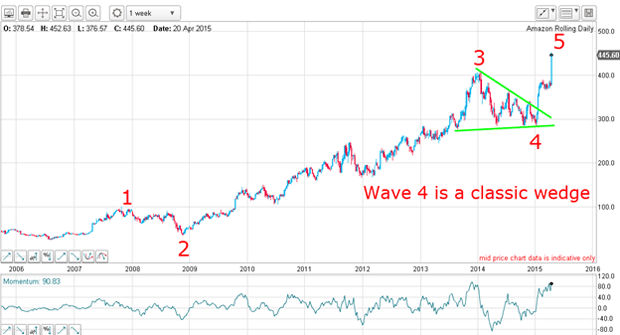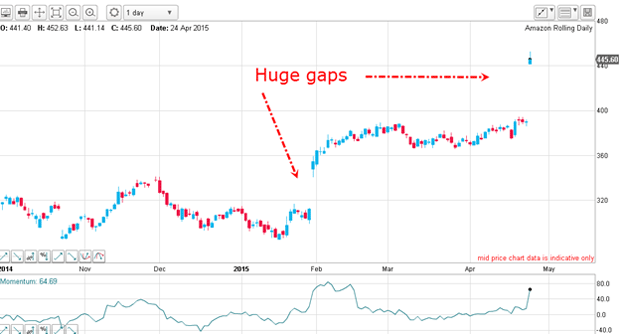Shares are madder than they’ve ever been
Stockmarket prices bear no relation to reality, says John C Burford. The day of reckoning is getting closer.
Get the latest financial news, insights and expert analysis from our award-winning MoneyWeek team, to help you understand what really matters when it comes to your finances.
You are now subscribed
Your newsletter sign-up was successful
Want to add more newsletters?

Twice daily
MoneyWeek
Get the latest financial news, insights and expert analysis from our award-winning MoneyWeek team, to help you understand what really matters when it comes to your finances.

Four times a week
Look After My Bills
Sign up to our free money-saving newsletter, filled with the latest news and expert advice to help you find the best tips and deals for managing your bills. Start saving today!
On Monday, I pointed out the record-low cash-to-assets ratio in US mutual funds, the record-low cash holdings in money market funds, and the record-low proportion of cash in Rydex funds.
I believe those statistics point to a massively over-loved US stockmarket, and its obverse, a hatred for cash.
As sure as night follows day, when bullish sentiment readings push off the scale, market tops are not far behind. That is the basic idea behind my search for major market tops.
MoneyWeek
Subscribe to MoneyWeek today and get your first six magazine issues absolutely FREE

Sign up to Money Morning
Don't miss the latest investment and personal finances news, market analysis, plus money-saving tips with our free twice-daily newsletter
Don't miss the latest investment and personal finances news, market analysis, plus money-saving tips with our free twice-daily newsletter
One statistic I did not mention is the record-high level of US corporate share buybacks. This highly popular piece of financial engineering reduces the free float of equities on the open market, which in one fell swoop enhances their price/earnings (p/e) ratios and crucially, enhances the bonus pool for the executives.
If companies valued cash more highly, they would use their cash piles to invest for the future (the traditional raison d'etre for exchanges in the first place). But why bother when they can issue all the junk bonds they want at record low yield spreads over risk-free Treasuries? And with the proceeds, buy back their own shares for a positive carry, with the added benefit of pushing up the value of executives' bonuses. It's a win-win for the company and shareholders alike.
Naturally, this operation will find few objectors on Wall Street that is why there have been few voices in the wilderness pointing out that the result will be off-the-scale p/e ratios. Eventually, even the dyed-in-the-wool bulls cannot fail to see the problem with this.
But recently, I have noted a sharp increase in anecdotes that put this dash from cash into sharp focus and in my mind, brings the day of reckoning that much closer.
Another US CEO is refusing cash
American Airlines (Nasdaq: AAL),
He joins the CEOs of S&P 500 companies Facebook, Kinder Morgan, Google and Fossil Group in choosing equities over cash.
Naturally, this man rationalises his decision with these words: "I wouldn't be doing this if I thought it was still the same old airline business, because it's not", Doug Parker said on Friday. "I'm not suggesting there is not some risk in airline stocks, but we're really bullish on what the outlook is for years to come."
The US airline industry notoriously cyclical has been a graveyard for investors in the past, but because of the year-long slump in crude oil prices and the buoyancy of demand for flights (and the reluctance of airlines to reduce fares to match fuel cost declines), profit margins this past year have ballooned.
That has the executives salivating and making super-bullish predictions on the back of stockmarket performance that has been stellar. The stock was trading under $10 three years ago. A recent quote is $50.
Crucially, this CEO does acknowledge his action has risk, but he chooses to ignore these risks and go all out for equities as compensation just as the share price is trading at all-time highs . That is about as extreme a hatred for cash as you can get, considering US CEOs are not known for their reluctance in accepting mammoth pay and bonus deals. In fact, this trend has been going on for a few years with a greater percentage of remuneration in the form of stocks and options over cash.
Incidentally, and with immaculate timing, crude oil prices have started rising again in recent days. Hmm.
Amazon in the grip of a mania

My wave 3 is long and strong, as I require, and wave 4, which lasted throughout all of 2014, is in a typical (and textbook) fourth wave wedge or triangle. And since January, the fifth wave has been forming with the market jumping on Friday above the wave 4 high.
In fact, Friday's amazing jump was spectacular. Here is the hourly chart:

Most would expect this performance would be the result of stunning company results maiden profits perhaps? But no, in true mania mode, results were sad to say the least.
LTM (last 12 months) loss was $406m the worst loss since December 2001.
And it marks the 18th straight quarter in which its LTM net income (earnings) has been going downhill.
The stock price now values the company at 65 times free cash flow, which has grown by a minuscule 0.8% a year for the past five years. In that time, the stock has grown by 450%.
Has Amazonfound a new transformative technology (other than delivering dog treats to your car by drone)? It is certainly buying start-ups with abandon, most of which will sink without trace if history is any guide.
No, traders afflicted with St Vitus' Dance have all pushed the Buy button (have they removed the Sell button from their trading platforms?) and lit a fuse under the shares by a staggering $50 in one fell swoop, thus placing them in the final fifth wave. The day of reckoning is getting closer.
Get the latest financial news, insights and expert analysis from our award-winning MoneyWeek team, to help you understand what really matters when it comes to your finances.
John is is a British-born lapsed PhD physicist, who previously worked for Nasa on the Mars exploration team. He is a former commodity trading advisor with the US Commodities Futures Trading Commission, and worked in a boutique futures house in California in the 1980s.
He was a partner in one of the first futures newsletter advisory services, based in Washington DC, specialising in pork bellies and currencies. John is primarily a chart-reading trader, having cut his trading teeth in the days before PCs.
As well as his work in the financial world, he has launched, run and sold several 'real' businesses producing 'real' products.
-
 Can mining stocks deliver golden gains?
Can mining stocks deliver golden gains?With gold and silver prices having outperformed the stock markets last year, mining stocks can be an effective, if volatile, means of gaining exposure
-
 8 ways the ‘sandwich generation’ can protect wealth
8 ways the ‘sandwich generation’ can protect wealthPeople squeezed between caring for ageing parents and adult children or younger grandchildren – known as the ‘sandwich generation’ – are at risk of neglecting their own financial planning. Here’s how to protect yourself and your loved ones’ wealth.